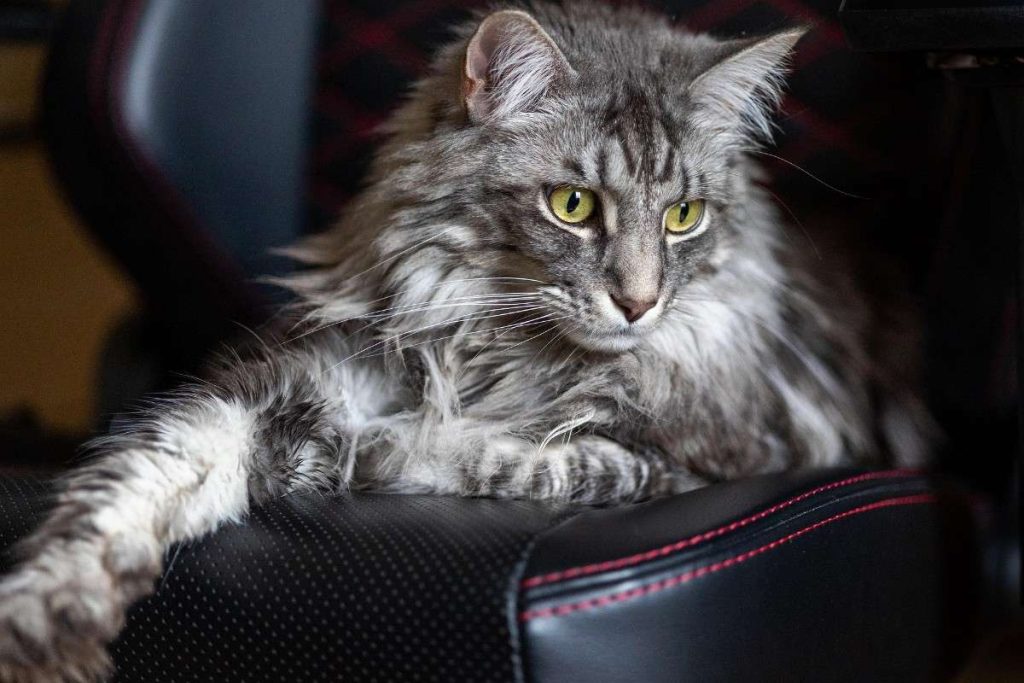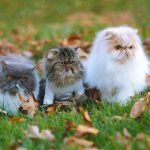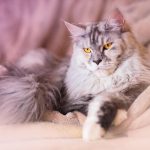Maine Coon cats are among the most fascinating and beloved cat breeds in the world. Known for their majestic size, luxurious coats, and affectionate nature, these cats have earned the nickname “Gentle Giants.” But what makes them so special, and why do cat lovers across the globe adore them? In this article, we’ll dive deep into the world of Maine Coon cats, exploring their history, physical characteristics, personality traits, and what sets them apart as truly unique companions.
The Maine Coon is one of the largest domesticated cat breeds, often weighing between 10 to 25 pounds, with males typically being bigger than females. Despite their impressive size, these cats have a calm and loving nature, making them ideal pets for families. Their sociable temperament and intelligence make them easy to train and fun to live with. They are not just beautiful to look at but are also known for their playful personalities and gentle demeanor, which is why they are often referred to as the “Gentle Giants” of the cat world.
In this comprehensive guide, we’ll uncover everything you need to know about Maine Coon cats why they are called Gentle Giants, their unique history, what makes them so friendly, and how to care for them properly. Whether you’re planning to adopt a Maine Coon or just curious about this magnificent breed, this article will provide valuable insights that every cat lover should know.
Origins and History of the Maine Coon
The Maine Coon’s history is shrouded in folklore and mystery. Originating in the northeastern United States, particularly Maine (the official state cat), this breed is one of the oldest natural breeds in North America.
Myths and Legends
- Raccoon Hybrid: Early myths claimed Maine Coons resulted from raccoon-cat pairings due to their bushy tails and large size. Genetics debunk this, but the myth persists in their name.
- Viking Connection: Some believe they descended from Norwegian Forest Cats brought by Viking explorers.
- Marie Antoinette’s Escape: A romantic tale suggests the French queen’s cats survived her execution and bred in Maine, contributing to the breed’s lineage.
Scientific Evolution
DNA studies reveal Maine Coons evolved from European cats brought by settlers, adapting to harsh New England winters. Their thick fur, muscular build, and snowshoe-like paws are products of natural selection.
Resurgence in Popularity
After nearly fading into obscurity in the mid-20th century, dedicated breeders revived the Maine Coon. By 1985, it became Maine’s official state cat, and today, it ranks among the top pedigree breeds worldwide.
Physical Characteristics: A Majestic Presence
Maine Coons are the largest domesticated cat breed, with males weighing 12–25+ lbs and females 8–15 lbs. Their striking features include:
- Coat: A water-resistant, semi-longhaired double coat with a ruff around the neck. Common colors include tabby, black, cream, and rare hues like smoke.
- Eyes: Large, oval-shaped, and expressive, ranging from green and gold to blue (in white-coated cats).
- Body: Muscular, rectangular build with a broad chest and long, bushy tail for balance and warmth.
- Paws: Large, tufted paws act as natural snowshoes. Some Maine Coons are polydactyl (extra toes), though this trait is excluded from show standards.
Personality: The Dog-Like Feline
Maine Coons are celebrated for their affectionate, playful, and intelligent nature:
- Sociable: They thrive on human interaction, often following owners like a shadow and joining family activities.
- Gentle and Patient: Ideal for families with children or other pets, they rarely display aggression.
- Intelligent: Easily trained to walk on leashes, play fetch, or solve puzzle toys.
- Vocal: They communicate with chirps, trills, and soft meows rather than loud yowls.
Care Essentials for Maine Coon Cats
1. Grooming
- Brushing: 2–3 times weekly to prevent mats, focusing on areas like the belly and legs. Use a stainless-steel comb or slicker brush.
- Bathing: Occasional baths with cat-safe shampoo help maintain their coat’s natural oils.
- Nail and Ear Care: Trim nails every 2–3 weeks and clean ears monthly to prevent infections.
2. Diet and Nutrition
- High-Protein Food: Prioritize meat-rich diets (e.g., chicken, turkey) to support their muscular build.
- Portion Control: Avoid free-feeding to prevent obesity, which exacerbates joint issues like hip dysplasia.
- Hydration: Provide wide water bowls to accommodate their long whiskers and consider a cat fountain.
3. Exercise and Enrichment
- Interactive Play: Feather wands, laser pointers, and puzzle feeders stimulate their hunting instincts.
- Vertical Space: Cat trees, shelves, and window perches cater to their love of climbing.
- Outdoor Access: Secure enclosures (e.g., catios) allow safe exploration.
Health Considerations
Maine Coons are generally robust but prone to genetic conditions:
- Hypertrophic Cardiomyopathy (HCM): A heart disease affecting 30% of the breed. DNA testing and annual echocardiograms are recommended.
- Hip Dysplasia: Common in large breeds; manage with weight control and joint supplements.
- Spinal Muscular Atrophy (SMA): A neuromuscular disorder detectable via genetic testing.
- Dental Issues: Regular brushing and vet cleanings prevent periodontal disease.
Lifespan: 12–15 years on average, with proper care.
Adopting vs. Buying a Maine Coon
| Option | Pros | Cons |
| Reputable Breeders | Health guarantees, pedigree documentation | High cost (£1,000–£2,500+) |
| Rescue/Shelters | Lower cost, ethical choice | Limited availability of purebreds |
Why Maine Coons Rule Pop Culture?
From viral TikTok stars like Zeus to fictional characters like “Reginald” in The Secret Life of Pets, Maine Coons charm audiences with their regal yet playful personas. Their intelligence and photogenic looks make them social media darlings and therapy cats.
Final Thoughts
Maine Coon cats are truly one of a kind. From their majestic appearance to their sweet and gentle personality, they have earned a well-deserved spot in the hearts of cat lovers everywhere. Their affectionate yet independent nature makes them the perfect companions for families, singles, and seniors alike. If you’ve been searching for a cat that combines elegance with playfulness, the Maine Coon might just be the perfect choice for you.
While their size can seem intimidating at first, their loving personality quickly proves why they are called “Gentle Giants.” They thrive on companionship, enjoy interactive play, and even have dog-like traits that make them unique among other breeds. Owning a Maine Coon is more than just having a pet, it’s like having a loyal friend who will stick by your side for years to come.
If you are considering bringing home a Maine Coon, be prepared for a lifetime of love, joy, and a little bit of extra grooming. These cats may require more care than some breeds, but their charm and devotion make every effort worthwhile. Whether you’re an experienced cat owner or a first-time pet parent, the Maine Coon will steal your heart and truly live up to its name the Gentle Giant of the feline world.
FAQs About Maine Coon Cat Breeds
Q1. Why are Maine Coon cats called gentle giants?
Maine Coons are called gentle giants because of their large size combined with their affectionate and calm nature. Despite their imposing appearance, they are friendly, loving, and great with families, making them gentle companions.
Q2. How big can a Maine Coon cat get?
Male Maine Coons can weigh between 13 to 18 pounds, and females usually weigh 8 to 12 pounds. Some males can even reach 20 pounds or more, making them one of the largest domesticated cat breeds.
Q3. Are Maine Coon cats aggressive?
No, Maine Coons are not aggressive by nature. They are known for their gentle and playful personalities. With proper socialization and care, they make affectionate family pets.
Q4. Do Maine Coons get along with children and dogs?
Yes, Maine Coons are one of the most sociable cat breeds. They generally get along well with children and even dogs, provided they are introduced properly and treated with respect.
Q5. How long do Maine Coon cats live?
The average lifespan of a Maine Coon is 12 to 15 years, although some can live even longer with proper care, a balanced diet, and regular vet checkups.
Q6. Are Maine Coons high-maintenance pets?
Maine Coons require regular grooming due to their thick, long fur. Weekly brushing is essential to prevent matting. Apart from grooming, they are relatively low-maintenance compared to some exotic breeds.


